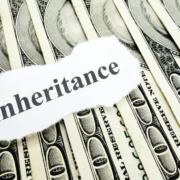What If I Don’t Have the Documents I Need for Divorce?
When you meet with your lawyer or mediator to begin the divorce proceedings, you need to have many documents with you, both personal and financial. Not having access to these documents could delay proceedings or damage your case and limit your settlement options. A partial list of documentation includes:
- Personal data: birth certificate; marriage license; life insurance and healthcare insurance; employment information and income; will and living will or advanced directive; power of attorney
- Financial data: complete list of assets (bank accounts, investments, pensions, and value of homes, cars, and personal property like jewelry, furniture, etc); expenses (all bills, loans, mortgage, etc.); income tax returns for the past several years; list of assets or expenses obtained or incurred singly before marriage or given to individual as a gift after marriage (both spouses)
- Childcare data: costs of childcare, evidence of each parent’s involvement in the child’s upbringing (involvement in school, sports, etc.) for custody settlement
This is a lot of information, and you may not have access to the records for a variety of reasons. But there are ways of getting what you need, although in some cases you may need help from your lawyer.
If vital personal records were lost or destroyed: For items such as birth certificates, green cards, income tax statements, and more, you can contact the federal government for duplicates. You will need to supply your social security number and you may need to show some other identification. In some cases, you may need to apply in person, while in others, like tax statements, you can make your request online.
If your spouse has the records of bills or assets and refuses to share: You may need to have your lawyer request a subpoena be issued to give you access to all the critical financial data you need. And as soon as possible upon deciding to divorce, sever all joint accounts, whether bank accounts, credit cards, or other things like family email, iTunes, social media, and others. See Shared Accounts and Your Divorce for more details.
If your credit card is in your spouse’s name but you are a secondary name, you can just call and have your name removed. If it’s a joint account, however, it may not be that simple. If both names are on any account, the company will hold you jointly responsible for the balance, and both of your credit scores will be affected by unpaid balances.
To prevent further use of joint credit cards or the withdrawal of money from joint bank accounts, your lawyer may have to request a temporary restraining order to freeze these accounts. Please discuss this with your attorney as soon as possible.
If you need evidence of child support and involvement: Contact your child’s school or daycare for copies of payments sent or parent-teacher conferences where the teacher would have recorded which parents attended. Photos and social media posts may also demonstrate the level of involvement in a child’s life by either parent.
Remember, it’s critical to have your documents as complete as possible in order to put you in a position of strength for your settlement or court appearance. You want to get the best financial and child custody arrangements to help you and your children be as comfortable as possible and be able to move on in a new life. Contact us here at Ulmer Law in Doylestown for our legal and mediation services. Let us help you.



